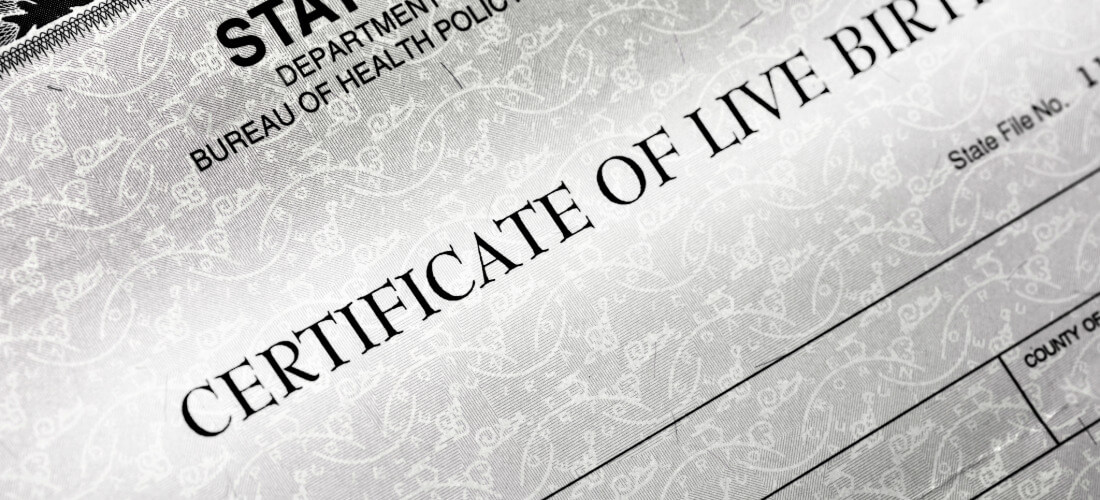
In October 2022, Tarrant County became the first county in Texas to offer a remote marriage license issuance system. What was once a paperwork-heavy, in-person-only process can now be completed by couples anywhere, even military personnel stationed overseas, at any time, in 10 minutes or less.
This didn’t happen overnight. Rather, remote marriage licensing stems from the pandemic’s onset, as many government innovation projects did, and now through technology and legislation, a major convenience is available in the second-largest state in the U.S.
How It Began
One origin story for online marriage licenses started in Dauphin County, PA. Faced with a state mandate to close offices due to the pandemic, Jean Marfizo King, President and Register of Wills & Clerk of Orphans’ Court for Dauphin County, and her First Deputy, Sara Shaffer, were suddenly tasked with offering necessary services without an office.
Initially, they developed a system using GovOS technology for online forms combined with readily available video technology to carry out some of the work online. The system worked but still had room for improvement. GovOS partnered with Jean and Sara to integrate a scheduler platform on top of our proprietary forms technology and added automated workflows, so communication between couples and the clerk’s office was faster and smoother.
The results were eye-opening. Dauphin County received 475 marriage license application submissions in the first four months and issued 347 licenses. In March 2022, Dauphin County reported 2,100 marriage license applications—approximately 86% of all applications received—were submitted online using the virtual system.
The Tech That Makes It Possible
From start to finish, the entire process of obtaining a marriage license can now be accomplished completely online. Couples start by completing an ADA-compliant, mobile-friendly form with supporting documentation attached. Counties collecting a fee can choose to add a PCI-compliant payment processing gateway and collect payment upon submission or place a pre-authorization hold on the submitter’s credit card until the process is complete.
When submitting the application, couples choose the date and time for an appointment with the county clerk. The convenience of this step can’t be overstated—the scheduler syncs automatically with the clerk office’s availability, so applicants don’t have to wait to get an email with available times or go back and forth on email suggesting potential dates.
At the appointment time, couples join a video conference with the county clerk’s office where they take their oath while the clerk witnesses. This step saves time spent driving to the clerk’s office, with the added costs of parking, childcare, and time away from work. When the oath is complete, the couple and clerk eSign the paperwork affirming the license application is official.
Once finished, the application and payment data are automatically sent to the GovOS Records system for processing. The clerk can now print and mail the license to the couple. Security is a top priority, and all data collected during the process is encrypted every step of the way.
Ready to speak to someone about your software needs?
Texas Takes Note
In June 2021, Texas Senate Bill 907 (SB907) authorized Texas counties to bring the marriage license process fully online. Although many Texas counties already offered the ability to begin the marriage license application online, couples were still required to appear before the county clerk in person to obtain the license. Texas SB907 gave counties more autonomy to local governments to choose whichever approach worked best for their citizens and staff.
The next step was developing a process for counties to get certified. Every county in Texas must be certified by the Texas Office of Court Administration (OCA) to issue marriage licenses. As such, the OCA set out to work on the framework for certification, including an outline of approved technology for remote marriage license issuance.
These requirements were outlined in Texas Administrative Code 176.2 and call for features like a landing page that details application instructions, an accessible online form for the license application, remote meeting facilitation and scheduling, the ability to upload supporting documentation, the ability to print or transmit the marriage license application and supporting documentation, and eSignature functionality to complete the process.
With a certification process in place, Tarrant County became the first county to apply for and receive a certificate to issue marriage licenses remotely. As Tarrant County Clerk Mary Louise Nicholson shared, “We process approximately 1,500 marriage licenses every month. Our process before could take 20-30 minutes per application. With our new remote marriage system, the process takes only 10-15 minutes. That’s a massive time savings for our staff, who can now have time back to focus on other projects.”
 She also underscored the convenience for citizens. “It’s all about convenience for citizens. They can now complete the application process from their job, their car, from a military base overseas—and this is for any couple who meets the requirements to apply for a marriage license, not just our own citizens. This is government using technology to improve lives, and that’s something I’ve always advocated for here in Tarrant County.”
She also underscored the convenience for citizens. “It’s all about convenience for citizens. They can now complete the application process from their job, their car, from a military base overseas—and this is for any couple who meets the requirements to apply for a marriage license, not just our own citizens. This is government using technology to improve lives, and that’s something I’ve always advocated for here in Tarrant County.”
Many online conveniences created during the pandemic have proven to have long-lasting appeal for citizens and county governments, and the ability to receive applications for and issue marriage licenses online is a perfect example. The time and cost savings for everyone involved are significant, and the citizens have shown through their actions that this is a welcome change to the way they work with their local government.
Now we wait to see which states move next. Michigan, Pennsylvania, and Texas have all taken proactive steps to improve the lives of their citizens and government staff by providing guidance on introducing new technology in a measured, meaningful way. We applaud their efforts and are ready to help whoever wants to join these other local government trailblazers.
To learn more about the GovOS Remote Marriage License Issuance System, visit govos.com/products/remote-marriage/









